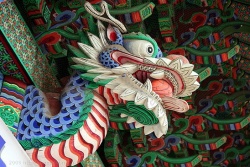Difference between revisions of "Great Ornament of Tales"
Jump to navigation
Jump to search
| Line 4: | Line 4: | ||
[[大荘厳論経]] (Skt [[Kalpana-manditika]]; Chin [[Ta-chuang-yen-lun-ching]]; Jpn [[Daishogon-rongyo]] ) | [[大荘厳論経]] (Skt [[Kalpana-manditika]]; Chin [[Ta-chuang-yen-lun-ching]]; Jpn [[Daishogon-rongyo]] ) | ||
| − | A work generally attributed to [[Ashvaghosha]] and translated into {{Wiki|Chinese}} by [[Kumarajiva]] in the early fifth century. A collection of ninety [[Buddhist]] tales, it contains stories about the [[deeds]] of [[Buddhist]] kings such as [[Ashoka]] and [[Kanishka]], anecdotes about [[Buddhist]] [[monks]] and lay believers, and stories about [[Shakyamuni Buddha]] in previous [[incarnations]] and of his [[compassionate]] [[deeds]] in his historic [[life]]. The stories deal with a variety of [[subjects]], such as the [[virtues]] of [[alms]] giving and the [[spirit]] to seek [[Buddhism]]. A number of them derive from the [[Agama sutras]]. The [[Sanskrit]] text is extant. | + | A work generally attributed to [[Ashvaghosha]] and translated into {{Wiki|Chinese}} by [[Kumarajiva]] in the early fifth century. A collection of ninety [[Buddhist]] tales, it contains stories about the [[deeds]] of [[Buddhist]] [[kings]] such as [[Ashoka]] and [[Kanishka]], anecdotes about [[Buddhist]] [[monks]] and lay believers, and stories about [[Shakyamuni Buddha]] in previous [[incarnations]] and of his [[compassionate]] [[deeds]] in his historic [[life]]. The stories deal with a variety of [[subjects]], such as the [[virtues]] of [[alms]] giving and the [[spirit]] to seek [[Buddhism]]. A number of them derive from the [[Agama sutras]]. The [[Sanskrit]] text is extant. |
</poem> | </poem> | ||
{{R}} | {{R}} | ||
Latest revision as of 14:05, 2 September 2014
Great Ornament of Tales, The
大荘厳論経 (Skt Kalpana-manditika; Chin Ta-chuang-yen-lun-ching; Jpn Daishogon-rongyo )
A work generally attributed to Ashvaghosha and translated into Chinese by Kumarajiva in the early fifth century. A collection of ninety Buddhist tales, it contains stories about the deeds of Buddhist kings such as Ashoka and Kanishka, anecdotes about Buddhist monks and lay believers, and stories about Shakyamuni Buddha in previous incarnations and of his compassionate deeds in his historic life. The stories deal with a variety of subjects, such as the virtues of alms giving and the spirit to seek Buddhism. A number of them derive from the Agama sutras. The Sanskrit text is extant.
